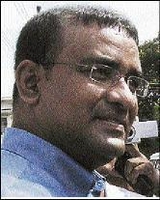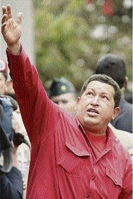PetroCaribe: Yes, we can
Published: Sunday | June 28, 2009

Robert Buddan
What if Jamaica does not find oil of its own? Could it invest in exploring for oil in another country and own a part of that investing company? Could it own a part of that oil and ensure its own supply in the future at a cheaper rate? Could it, in other words, own extra-territorial oil?
No country has ever offered this, but at June's sixth summit of PetroCaribe members, this is what Hugo Chavez of Venezuela offered. Venezuela is offering the members of PetroCaribe the opportunity to create mixed enterprises to explore for oil and gas in its richest oil belt in the Orinoco. A country like Jamaica, or a group like CARICOM, could have its own multinational inter-governmental enterprise upon which it could create a real energy industry. Can we become more energy independent? Yes, we can.
What if Jamaica could use more of its wind, water and sunshine for energy, energy that is renewable and clean? Well, that was also discussed at the PetroCaribe summit. Venezuela also offered to assist countries to develop these alternative energy sources saying how well the Caribbean was suited for these alternatives. Venezuela has already started such projects in Dominica, Nicaragua and Cuba.
net metering

President of Guyana, Bharrat Jagdeo. - File
Cuba has set up 180 micro hydro systems, harnessing energy from water, over 8,000 solar electrical systems, and this year alone it will add 300 biogas plants to use animal wastes to create cooking fuel. Wouldn't this be better than stealing electricity from Jamaica Public Service or struggling with the electricity bill each month? We could actually make money selling energy to the national grid by net metering. Can we not achieve sustainable and clean energy this way? Yes, we can.
What if we could have more food production? After all, we can't eat oil even if we could afford all we could get. Well, we can, and yes, it's possible through PetroCaribe too. Food production suffers because the cost of fertiliser is high. Ralph Gonsalves, the prime minister of St Vincent and the Grenadines, said at the PetroCaribe Summit that in 2005 a ton of fertiliser cost an average of US$268. By 2007, it had jumped to US$405. It got higher in 2008, averaging US$875. This year it is projected to hit US$998.
It has been news that fertiliser prices are high. It has also been news that we have supposedly been importing fertiliser the quality of which has been the subject of much discussion. So, what if we could get urea, a cheaper chemical used in fertiliser at a 50 per cent discount? What if we only had to pay half on receipt of the urea and the other half after the crop is harvested and we have newly earned money to pay for it? Well, as Barrack Obama would say, yes, we can. Venezuela has offered to do precisely this.
It has offered to do more. One problem we have is that as oil prices increase more countries look to alternatives like ethanol. So, we put more of our land into ethanol to feed cars and less land is left to grow food to feed people. Under PetroCaribe we can grow food and exchange the surplus for oil or consume it ourselves. In fact, PetroCaribe established a fund in 2008 built up with US$0.50 of every barrel of oil it sells to be used for food and agricultural initiatives. The president of Guyana, Bharrat Jagdeo, for example, developed the Jagdeo Initiative for the purpose of the region's food security. The plan is there. We could get some funds for at least a part of that plan. Jamaica spent US$760 million to import food last year rather than take up initiatives to grow more of its own food.
YES, WE WILL

President of venezuela Hugo Chavez.
President Obama has given us an inspirational slogan, 'Yes, we can'; and President Chavez has provided us with the opportunity through the energy and food agreement to say, yes, we will. Bruce Golding has said that the PetroCaribe agreement is a model of South-South co-operation. Panama intends to introduce a resolution in the United Nations to this effect. South-South cooperation means saying 'yes' to good ideas for development that 'we' the developing countries in the South 'can' and have been successfully co-operating around.
We must take fuller advantage of the energy and food plans. It is one thing to be inspired. It is another thing to demonstrate the will so that 'yes, we can' becomes 'yes, we will', because we must. We should not want this and future generations to have to ask, why didn't you?
The Caribbean Policy Research Institute said in 2007 that PetroCaribe was merely a product of Chavez's cult of personality that would not last. We must put our faith in the West, it said. Yes, we will, as soon as the West provide opportunities for development, which the Caribbean Basin Initiative, the Caribbean-Canada Agreement and the Economic Partnership Agreement with Europe do not, at least not for the poor, for food and energy security and for South-South and North-South cooperation in true international partnership.
For too long, the Commonwealth Caribbean have seen ourselves as the darling of the United States, taking it for granted that the US will always protect and support us because of the shared English-speaking, democratic Anglo-American heritage. We must not be so naive. Even Obama has been consumed with putting out big fires abroad and at home. US administrations have not evolved any new Caribbean policy for 25 years.
CHANGING ENERGY MARKET
I don't mean to suggest that the 'west' can offer nothing, that our entire hopes rest on PetroCaribe or that we have not been doing anything on our own. However, the changes occurring in the world energy market is so profound that we cannot do enough by ourselves, or just with the west. Venezuela is one country we can do business with. Brazil is another and there are others still. The point is that we must look for every opportunity wherever they arise. We must plan already for the next energy crisis, which is already under way.
The 2009 report of the Energy Information Organisation of the United States Department of Energy now seems to agree that we have reached the point of peak oil where energy supply projected up to the year 2030 cannot meet energy demand. Basic economics suggest that oil prices will rise and the era of cheap oil is over. We have just tabled a document in Parliament called Vision 2030: Jamaica's National Plan for Development to make Jamaica a developed country by that year. If we are going to come near to this we have to plan. The industrialisation required for this will significantly increase our own demand for energy.
Furthermore, as energy costs increase we have to develop our own alternatives along with buying 'unconventional fuels' from countries like Canada, Brazil, Venezuela, and according to the prognosis, Cuba in the future as well. Oil price increases will cause commodity price increases affecting food and other consumer items. So, we must grow more of our own food and produce more of our needs locally while importing less. After the financial crisis an energy and food crisis could well follow, and some have now started to speak of "peak water".
Robert Buddan lectures in the Department of Government, UWI, Mona Campus. Email: Robert. Buddan@uwimona.edu.jm or columns@gleanerjm.com.
